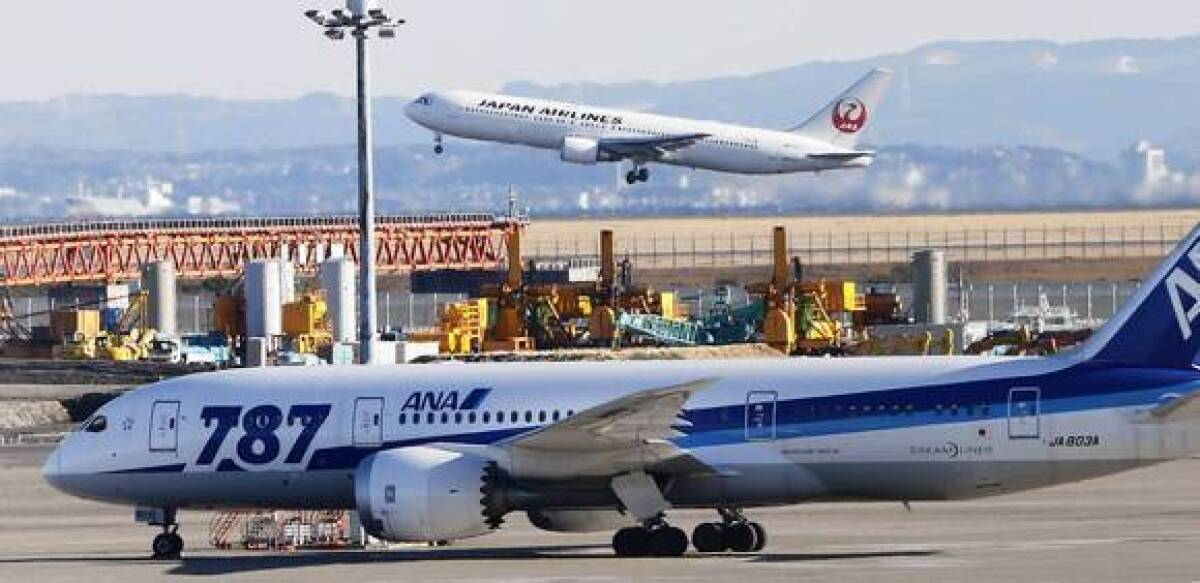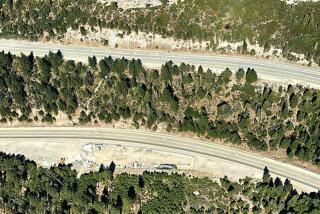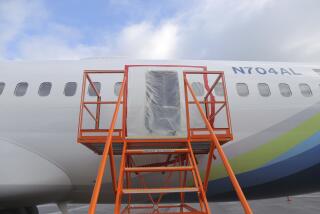Japan traces Boeing 787 problem to improper wiring, report says

Japanâs investigation into a burning lithium-ion battery aboard a Boeing 787 Dreamliner flight found it was improperly wired, according to an Associated Press report.
The countryâs Transport Safety Board had been looking into the circumstances that led the All Nippon Airways flight to make an emergency landing in southwestern Japan.
All 137 passengers and crew were evacuated from the aircraft and slid down the Dreamlinerâs emergency slides. Video of the event captured by a passenger has been viewed worldwide.
According to the AP, the Transport Safety Boardâs report said âthe battery of the aircraftâs auxiliary power unit was incorrectly connected to the main battery that overheated, although a protective valve would have prevented power from the APU from doing damage.â
More analysis was still needed, the report said.
The announcement was the latest update of the safety investigation into the 787 after the U.S. Federal Aviation Administration grounded the aircraft Jan. 16 following two incidents within two weeks involving the batteries.
The technology was also implicated in a Jan. 6 fire aboard a parked 787 in Boston operated by Japan Airlines. The National Transportation Safety Board is still probing the root cause of the event, but said this month that investigators had found a short circuit in one of the aircraftâs batteries.
Boeing has delivered 50 787s to eight airlines worldwide. Six of the planes are owned by United Airlines -- the only U.S. carrier that has 787s in its fleet.
Boeing said that it is unable to comment on the Transportation Safety Boardâs findings, âas it is part of the investigation in Japan.â
ALSO:
Airbus scraps battery plans after Boeingâs 787 struggles
NASA observation satellite blasts into orbit from Vandenberg
Boeing 787 Dreamliner fire traced to battery cell, but questions remain
More to Read
Sign up for Essential California
The most important California stories and recommendations in your inbox every morning.
You may occasionally receive promotional content from the Los Angeles Times.











